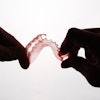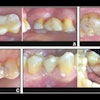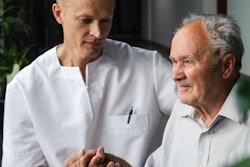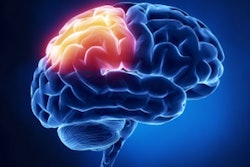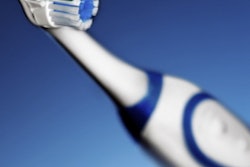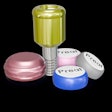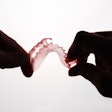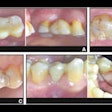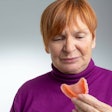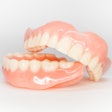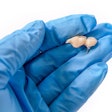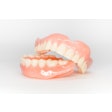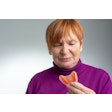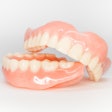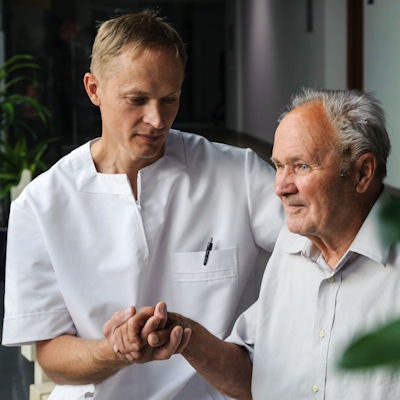
Can preventing tooth loss and dry mouth in older people help to keep them strong? A study examined the relationship between various oral health issues and frailty in the elderly, with the results suggesting a possible role for oral healthcare management in staving off this type of physical deterioration.
Researchers investigated the prevalence of frailty and various oral health measures in more than 1,600 men in their 70s through early 90s in the U.K. They found that oral health problems were associated with greater risks of being frail and developing frailty in older age (Journal of the American Geriatrics Society, December 20, 2017).
"Oral health problems of tooth loss and dry mouth potentially play an important role in developing frailty," lead study author Sheena Ramsay, PhD, BDS, MPH, told DrBicuspid.com. "Adequate treatment and management of these conditions could be important in reducing frailty in older people."
Dr. Ramsay is a clinical senior lecturer at the Institute of Health and Society at Newcastle University in Newcastle upon Tyne in the U.K.
Walk this way
With people living longer, preventing frailty in the elderly is increasingly important, Dr. Ramsay told DrBicuspid.com.
"Studies have suggested that poor oral health can be a contributing factor to frailty, and we were interested in investigating whether this was the case," she noted.
To gain further information, Dr. Ramsay and her colleagues examined oral health and frailty over three years of follow-up in men who participated in the British Regional Heart Study. In 1978 through 1980, investigators for that study recruited a socially and geographically representative sample of 7,735 men from 24 towns between the ages of 40 and 59 when initially examined.
Researchers for the current study invited the surviving participants of the heart study to undergo an examination in 2010 through 2012 when they were ages 71 to 92 that included the following:
- Measurements of height, weight, and waist circumference
- A timed test of walking 3 m at a normal pace
- Grip strength measured with a hydraulic hand dynamometer
- An oral health assessment that included a count of natural teeth, two measures of periodontal conditions on six index teeth, and periodontal pocket depth
- Completion of a questionnaire on self-reported oral health measures, including overall oral health; dry mouth (based on the Xerostomia Inventory); sensitivity to hot, cold, and sweet; and difficulty eating
The participants also completed a questionnaire on their medical history and lifestyle factors at the time of the physical exam or by mail. In 2014, the researchers sent a follow-up questionnaire with medical, social, and health-related items, including some related to frailty.
They quantified the frailty of the participants in 2010 to 2012 by inputting data from the questionnaires and physical assessment into the Fried frailty phenotype criteria, which include the following measures: self-reported unintentional weight loss of 5% or more, self-reported exhaustion, weakness (being in the lowest fifth of grip strength distribution), and being in the lowest fifth of walking speed distribution.
Frailty at follow-up was based on responses to the follow-up questionnaire, which included subjective questions about exhaustion, physical activity level, grip strength compared with other people their age, walking speed, and weight loss.
More than 2,100 men (68% response rate) completed the initial questionnaires. The results included 1,722 men who underwent an examination (55% response rate), of whom 1,622 had complete frailty status data. Of this group, 303 (19%) were frail.
Is it dry in here?
After adjusting for age, smoking, social class, history of cardiovascular disease or diabetes, and use of medications with dry mouth as a side effect, the researchers found being frail was statistically significantly associated with each of the following oral health factors:
“We found that not only tooth loss but also having dry mouth was associated with an increased risk of becoming frail.”
- Edentulism
- Fair to poor self-rated oral health
- Three or more dry mouth symptoms
- Greater number of oral health problems
After an average of three years, more than 1,050 of the participants completed the follow-up questionnaire by mail. Among them, 10% experienced incident frailty during the follow-up period. After adjustments, the risk of incident frailty was nearly two times or more higher among those with any of the following oral health issues:
- Edentulism (odds ratio 1.90)
- Three or more dry mouth symptoms (odds ratio 2.05)
- At least one oral health problem (odds ratio 2.31 for one, 2.30 for two, 2.71 for three or more)
"We found that not only tooth loss but also having dry mouth was associated with an increased risk of becoming frail," Dr. Ramsay stated.
The authors noted that no markers of periodontal disease were associated with incident frailty in their study, although this could be because the measures of periodontal disease were limited to six index teeth.
Links between oral health and frailty
The researchers reported the following limitations of their study:
- The study population was made up of older men who were mostly white Europeans, limiting generalizations to women and other groups.
- Participation in the physical exam likely excluded individuals with worse health.
- Those who did not participate in the exam tended to be older, more likely to be in a manual social class group, and have poor or fair self-rated oral health, so the role of socioeconomic status and comorbidities may not have been fully accounted for.
- Incident frailty was based on self-reported measures and could have been underestimated.
The researchers expect to continue to study the links between poor oral health and frailty.
"We plan to further investigate the ways in which poor oral health might lead to frailty, for example through nutrition or inflammation," Dr. Ramsay stated.


